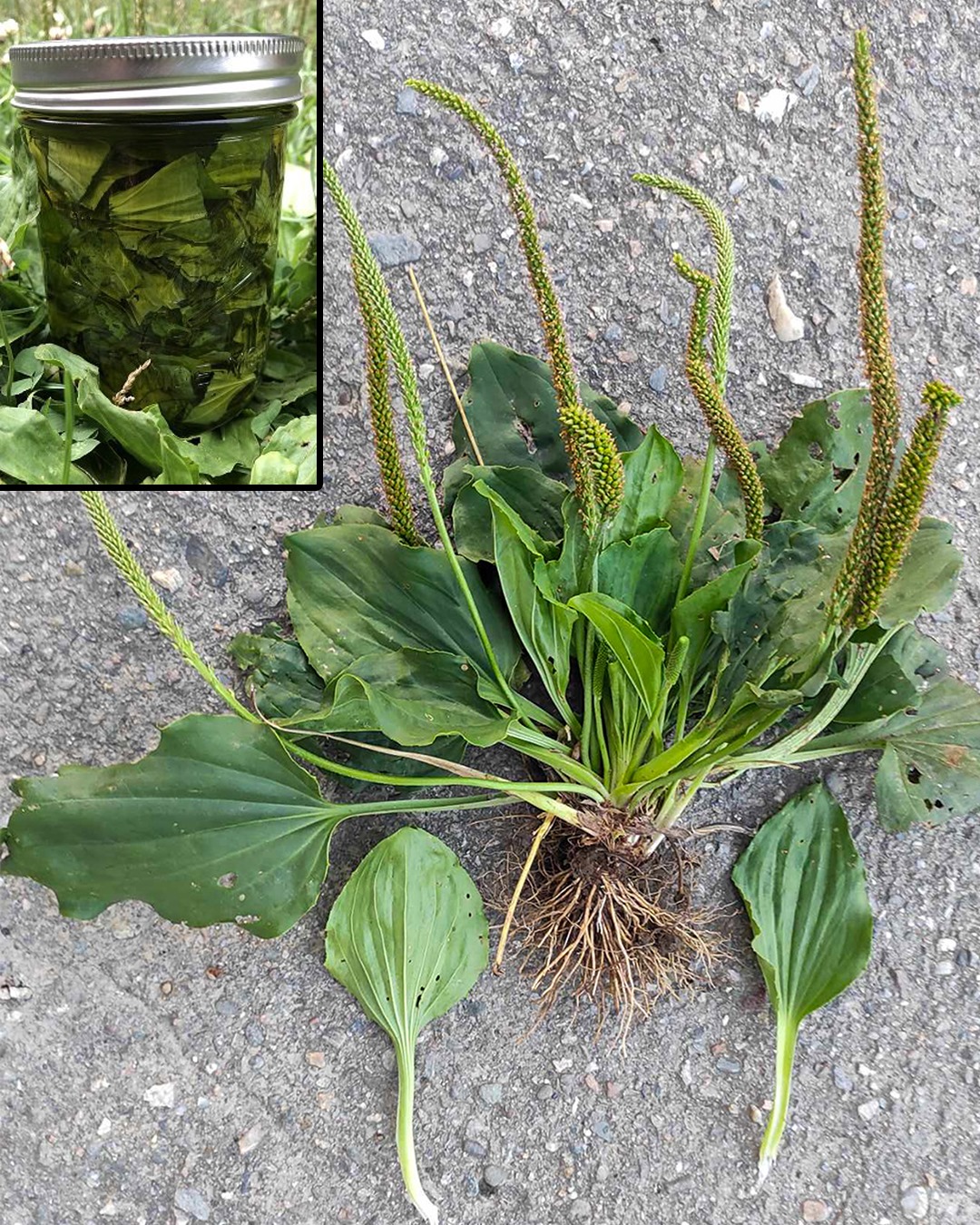
Broadleaf plantain (Plantago major) is a common weed that boasts a wide range of health benefits and uses. This resilient plant, often found in lawns, gardens, and meadows, has been used in traditional medicine for centuries. Here’s a closer look at the health benefits and various uses of broadleaf plantain:
Health Benefits
- Anti-Inflammatory Properties:
- Broadleaf plantain contains compounds like aucubin and flavonoids that have anti-inflammatory effects. These compounds can help reduce inflammation and soothe irritated tissues.
- Wound Healing:
- The leaves of broadleaf plantain can be applied topically to wounds, cuts, and insect bites. Its natural antibacterial and anti-inflammatory properties promote faster healing and reduce the risk of infection.
- Digestive Health:
- The seeds and leaves of plantain are rich in mucilage, which can help soothe the digestive tract. It is often used to treat conditions like gastritis, ulcers, and irritable bowel syndrome (IBS).
- Respiratory Relief:
- Broadleaf plantain has been traditionally used to treat respiratory conditions such as coughs, colds, bronchitis, and asthma. It helps to reduce mucus production and soothe the respiratory tract.
- Skin Care:
- The leaves can be used to treat various skin conditions like eczema, psoriasis, and rashes. The anti-inflammatory and moisturizing properties help to calm and heal irritated skin.
- Immune Support:
- The plant contains vitamins A, C, and K, as well as several minerals, which can help boost the immune system and improve overall health.
Uses
- Topical Applications:
- Poultice: Crush fresh plantain leaves and apply them directly to wounds, cuts, insect bites, and stings to reduce pain and promote healing.
- Salve: Infuse plantain leaves in oil and mix with beeswax to create a healing salve for burns, rashes, and dry skin.
- Teas and Infusions:
- Herbal Tea: Steep dried or fresh plantain leaves in hot water for 10-15 minutes. This tea can be consumed to help with respiratory issues, digestive problems, and overall immune support.
- Infusion: Make a stronger infusion by steeping the leaves in hot water for several hours or overnight. This can be used as a gargle for sore throats or as a soothing drink for digestive issues.
- Culinary Uses:
- Salads: Young, tender plantain leaves can be added to salads for a nutritional boost.
- Cooked Greens: Older leaves can be cooked like spinach or added to soups and stews.
- Seed Uses:
- Fiber Supplement: Plantain seeds are similar to psyllium and can be used as a natural fiber supplement to aid digestion and relieve constipation.
- Natural Remedy:
- Syrup: Make a plantain syrup by simmering the leaves in water and then adding honey. This syrup can be taken to relieve coughs and soothe the throat.
- Tincture: Create a tincture by soaking plantain leaves in alcohol for several weeks. This can be used for its various medicinal properties, including as an immune booster and digestive aid.
How to Identify and Harvest
- Identification: Broadleaf plantain has large, oval leaves with prominent parallel veins and a central flower spike that produces small, greenish-brown flowers.
- Harvesting: Collect leaves from clean, uncontaminated areas. Harvest young leaves for culinary uses and older leaves for medicinal preparations.
Safety and Precautions
- Allergies: Some individuals may be allergic to plantain. If you experience any adverse reactions, discontinue use immediately.
- Consultation: Always consult with a healthcare professional before using plantain, especially if you are pregnant, nursing, or taking any medications.
Broadleaf plantain is a versatile plant with numerous health benefits and practical uses. Incorporating it into your herbal medicine toolkit can provide natural remedies for various ailments and support overall well-being.
